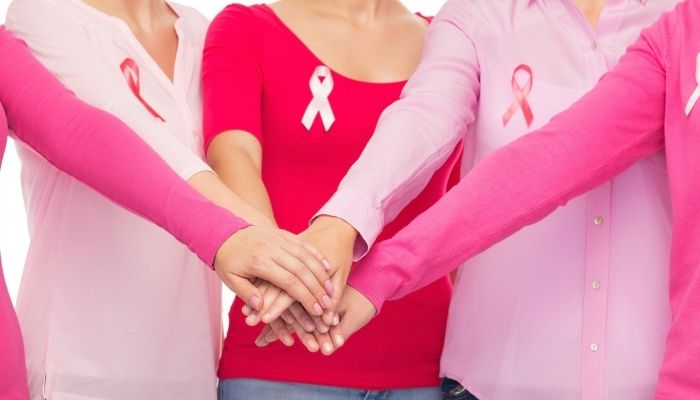Breast cancer is a disease that will drain you both physically and mentally. If you are receiving various treatments for breast cancer, then you must follow a wholesome diet. A healthy and nutritious diet will help you to heal faster from cancer treatment methods. Common side effects of cancer treatment are mouth sores, low appetite, nausea, and vomiting.
Though there is no specific breast cancer diet, your nutrients may depend on multifarious factors including medical diagnoses, your body weight, nutrient deficiencies, medications, and any symptoms that you are experiencing. Your healthcare team will collaborate with a deft oncology nutritionist who will offer you an appropriate diet plan based on your needs and overall health.

A diet plan should prioritize the below-mentioned foods
- A southern diet that contains cooked greens, legumes, and sweet potatoes
- A Mediterranean diet that focuses on fresh fruits, vegetables and healthful oils
- Any “prudent” diet that contains adequate fruits, vegetables, whole grains, and fish
Top 4 Foods That Prevent Breast Cancer
1. Fruits and Vegetables
A medical study was conducted on 91,779 women and it was revealed that women who ate more fruits and vegetables have been able to reduce the risk of developing breast cancer by 15%. Fruits and vegetables contain flavonoids and carotenoids that have numerous medical benefits.Foods that are beneficial in preventing breast cancer are:
- Dark, green, leafy vegetables, such as kale and broccoli
- Fruits, especially berries and peaches
- Beans, pulses, fish, eggs, and some meat
2. Dietary Fiber and Antioxidants
Several medical studies have suggested that dietary fiber is effective against breast cancer.Too much estrogen production is responsible for spreading some types of breast cancer. Some treatments will keep estrogen from interacting with breast cancer cells. High-fibrous diet can support this process and speed up the removal of estrogen.
The way fiber fastens to estrogen in the gut will prevent your body from absorbing excessive estrogen. These factors will reduce the risk of breast cancer. Fruits, vegetables, whole grains, and legumes comprise antioxidants, including beta carotene and vitamins C and E.
By minimizing free radicals, antioxidants prevent the disease. A study was conducted in 2013 and it was found that people who consume more whole grains may have a fewer risk of breast cancer. The healthcare experts suggest taking 33.6 grams of fiber a day.
3. Good Fat
Fatty foods are responsible for obesity and will also uplift your risk of developing cancer, including breast cancer. Though fat is also important in your diet, you should intake the right type. Polyunsaturated and monounsaturated fats can be beneficial if consumed moderately.They are present in:
- Olive oil
- Avocados
- Seeds
- Nuts
- Coldwater fish, such as salmon and herring (possess omega-3 fatty acids that minimize the chances of breast cancer)
4. Soy
Soy is a healthy food that minimizes the risk of breast cancer. This plant-based product contains high protein, healthful fat, vitamins, and minerals. It also comes up with antioxidants known as isoflavones.Soy also reduces the levels of low-density lipoprotein (LDL) or bad cholesterol and minimizes the risk of heart disease. An increased level of LDL may lead to various metabolic syndromes that induce inflammation. Inflammation plays a pivotal role in breast cancer.
Soy is present in foods items like:
- Tofu
- Tempeh
- Soy milk
- Soy nuts
Top 6 Foods to Avoid for Breast Cancer
While going through breast cancer treatment, you can only eat specific food items. When you start feeling well, follow a nutrient-dense diet that comprises foods like fruits, vegetables, protein sources like chicken and fish, high fiber foods like beans, and healthy fats like avocados, olive oil, and nuts.To deal with your present situation, you need to avoid or restrict certain food or beverage items.
1. Alcohol
Beer, wine, and liquor may interfere with your cancer drugs. Some healthcare experts believe that consumption of alcohol may induce recurrence and mortality for your existing breast cancer.2. Spicy, crunchy, or acidic foods
These food items will enhance your mouth soreness. Mouth soreness is a common side effect of chemotherapy.3. Undercooked foods
You may develop infections frequently if you have breast cancer. Thus, you should avoid raw food items like sushi and oysters during your treatment. Completely cook meats, fish, and poultry to a certain temperature before consuming them. Discard raw nuts, expired or moldy foods, or leftover food items that you store in the refrigerator for more than 3 days.4. Red and processed meat
Mortality risk is associated with lower levels of diet quality. Red and processed meats will minimize lower dietary quality.5. Sugar-sweetened beverages
Discard sugary beverages to maintain a healthy weight6. Highly processed foods and refined grains
A study was conducted in 2018 and it has been found that there is a 10 percent increase in breast cancer risk for those who consume ultra-processed foods.Read More: Breast Cancer Screening For An Early Save


